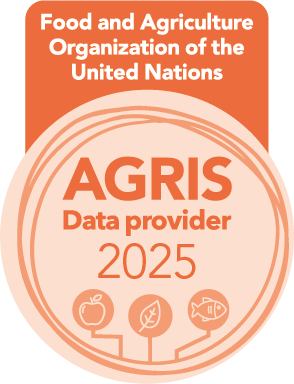The Diet Equation: Linking Food, Genetics, and Wellness
DOI:
https://doi.org/10.54393/df.v5i03.146Abstract
Recent research demonstrates that food affects our physiology, and genetic code, influencing health and life span. Our knowledge of diet and wellness has increased significantly, highlighting the connection between our genetic makeup and what we eat in our daily routine. This method changes our conviction about health and offers a modified path to a great lifestyle [1].
Historically, all types of dietary guidelines were based on the study of a large population and generally recommended to everyone. After the involvement of genetic research, the approaches have been different now, a study revealed that everybody processes food and absorbs nutrients differently according to their genetic makeup. For example, some people might metabolize caffeine slowly compared to others, whereas some people have a genetic tendency to lactose intolerance. As per the type of nutritional information, it is stated that nutrients can change the genetic information over the generations.
Nutritional genomics also known as nutrigenomics, explores the relationship between the human genome, diet, and health outcomes. Researchers reveal how our body responds to different types of food and nutrients, and also identify the interaction between specific food compounds and genes. Food contains micro and macronutrients and their breakdown activates the genetic switches to regulate the genome.
Furthermore, the development of individual genetic testing helps to identify the personal genetic makeup and design their food accordingly, helping to make decisions about the nutrients. The significant increase in cases of diabetes, cardiovascular disease, and obesity has been linked to the high sugar and fat content typical of Western lifestyles. Medical anthropologists and researchers have termed this phenomenon a ‘disease of civilization’.
Despite these advancements in the field of nutrigenomics, the integration of genetics and diet is not without challenges. One of the major concerns is the interpretation and application of genetic information. Furthermore, there is a need for more rigorous clinical studies to validate the effect of a personalized based diet on genetic information.
Additionally, ethical considerations surrounding genetic data privacy and potential misuse of genetic information are paramount. Assurance that genetic data is handled with confidentiality and that personalized dietary recommendations are based on robust scientific evidence is crucial for maintaining public health.
With the advancement in genomics, data science, and biotechnology. We can anticipate a more nuanced understanding of how genetic variations influence nutritional needs and health outcomes.
In conclusion, the intersection of genetics, food, and wellness represents a promising frontier in personalized medicine. As research and technology progress, the diet equation will become increasingly sophisticated, paving the way for a future where our diets are as unique as our genetic blueprints.
References
Dus M. What you eat can reprogram your genes – an expert explains the emerging science of nutrigenomics. The Conversation 2022 March. [Last Cited: 06th Sep 2024]. Available at: What you eat can reprogram your genes – an expert explains the emerging science of nutrigenomics (theconversation.com).
Downloads
Published
How to Cite
Issue
Section
License
Copyright (c) 2024 DIET FACTOR (Journal of Nutritional and Food Sciences)

This work is licensed under a Creative Commons Attribution 4.0 International License.
This is an open-access journal and all the published articles / items are distributed under the terms of the Creative Commons Attribution License, which permits unrestricted use, distribution, and reproduction in any medium, provided the original author and source are credited. For comments












